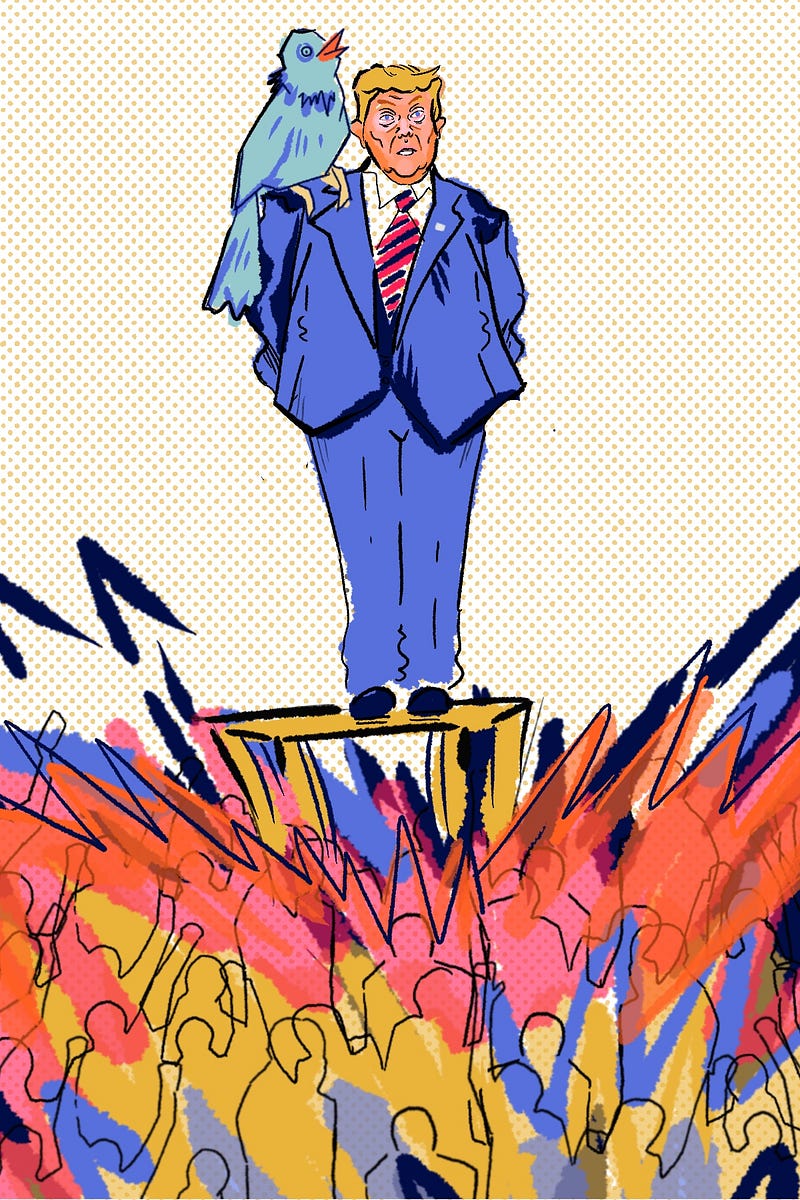A Letter to Twitter
Exploring the profound impact Twitter has had on my personal life and on the world, from uniting people to inciting violence.
Story by Ashlyn Farnworth

Dearest Twitter,
I originally signed up for your services when I was 13 years old because I needed an additional platform to stalk my favorite British boyband, One Direction. Your application quickly became one of my favorite pastimes during my formative years as a preteen. I was granted access to the entire world at my fingertips.
But as years passed and I grew older, I watched social media morph into the monster it has become today.
The internet has lacked empathy ever since its creation. The faceless nature of social media has given way to cyberbullying, cancel culture and nasty attacks on others. This is due in part to the disconnect from other individuals and isolation that social media can perpetuate.
In recent months, we have seen you be weaponized to alter the perception of an entire mass of people. No better example of this case exists than the debacle of the 2020 presidential election.
On Jan. 8, 2020, you officially banned former president Donald Trump from your social media platform, suspending all of his accounts in an unprecedented move. “We made it clear going back years that [elected officials’] accounts are not above our rules entirely and cannot use Twitter to incite violence, among other things,” you wrote in a company statement.
Does the right of free speech trump public safety? The answer may surprise many people.
One of the tell-tale signs of a misguided patriot on the internet is this common sentiment: “It’s a free country! I can say whatever the hell I want!” Come to find out, this is simply not the case.
“Social media companies are private entities that can moderate any of the content that floods their platforms,” according to The New York Times. “They can kick off users who violate whatever policies they have in place, change those policies anytime they like and be wildly inconsistent in how they enforce them.”
Section 230 of the 1996 Communications Decency Act provides legal immunity as well as liability protections for internet services. It shields social media corporations like Facebook and yourself from receiving backlash for the types of content account users upload. Former President Trump made attempts to repeal the law, and while it was challenged in court, it was not revoked and still stands today.
Twitter, you aren’t all bad.
Social media emerged from a need to foster connection and community without being physically present. You have been my one-stop shop for fast and timely information, connecting me to people miles and worlds away. But when it comes down to it, is the feeling of togetherness just a false sense of connection?
Many studies suggest that the addictiveness of social media and the appeal of making the highest number of superficial relationships (followers) has detrimental psychological and social (the real-world kind) effects.
“The Impact of Social Media On Society” written by Jacob Amedie, a programmer and social media analyst, studies what he refers to as the “side effects” of being a part of the social media scape. In addition to increased levels of anxiety and problems with catfishing (which means presenting a false reality of yourself), platforms can be used as tools to participate in criminal acts, like terrorism attacks.
“Despite the positive benefit of rapid information sharing, social media enables people to create false identities and superficial connections, causes depression and is a primary recruiting tool of criminals and terrorists,” Amedie explains.
This begs the question: do the pros of social media outweigh the dark cons that it also brings to the table?
I don’t believe you are completely beyond hope, Twitter. If this past year of social isolation due to the pandemic has taught me anything, it is that togetherness exists in many different forms.
There has been a spotlight on social media like never before in history, and people are paying attention. People are standing up for social injustices and inequities in this country. Sharing differing opinions, ideas and voices is how change happens. Twitter, you play an important role in many crucial discussions that spark change.
Today, at 19, I no longer find myself fangirling for boys in bands. Instead, I find myself relentlessly checking the news tab for the latest developments in the state of our planet. You have become an integral part of my profession as I delve into the world of social media public relations and journalism.
Whether I like it or not, you and I are going to be together for the long haul.
Yours truly,
Ashlyn
